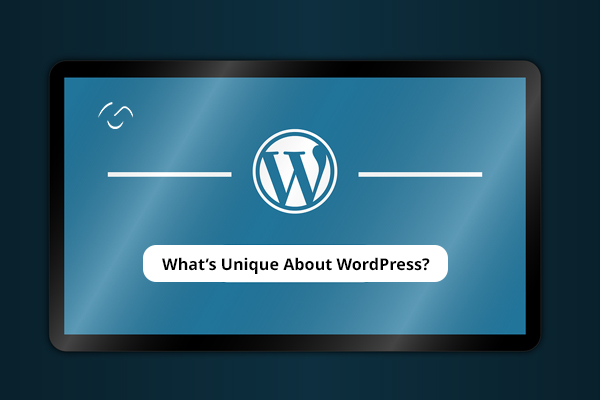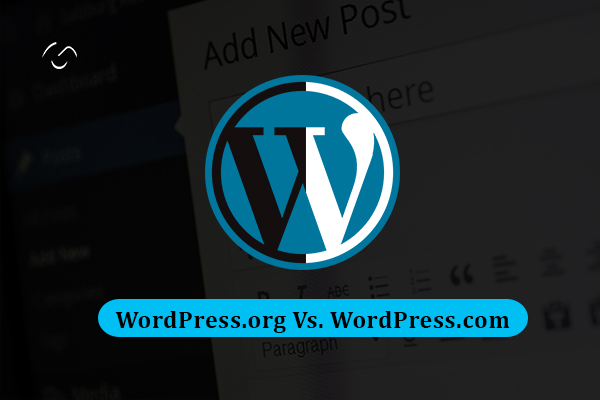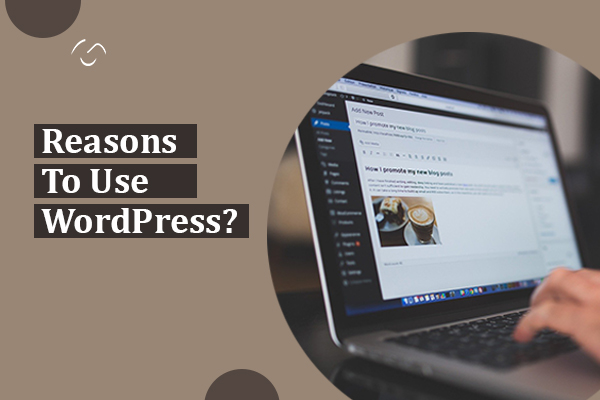Website powered by Shopify, WordPress, and Magento covers almost 71% of the total market share. Shopify as of now has over 500,000 customers, WordPress has millions of active websites, and Magento has had over 250,000 websites for quite some time. We are describing each important factor here about Shopify vs WordPress vs Magento.
So Many businesses have used or are considering using one of these platforms for their eCommerce website and business.
All three are backed by multibillion-dollar corporations, so you can rest assured that they’ll continue to update and improve the software in the future.
So, with so many variances and similarities, how can you choose the finest eCommerce platform for your business needs?
In this blog post, we’ll compare Shopify, Magento, and WordPress to help you decide which platform you should opt for.
We’ll go through the advantages and disadvantages of each platform, as well as the kind of stores that each platform is most suited for, to help you choose the ideal one for you.
Let’s get started.
What is Shopify?

Shopify is a simple-to-use tool for online merchants that also includes a Point of Sale (POS) system for accepting payments in physical stores.
It allows businesses to create a multi-channel experience that highlights their brand. You may construct a website and use their shopping cart solution to sell, ship, and manage your products with their subscription-based platform.
It includes a number of tools to assist you in analyzing every area of your online store. Users may create personalized online experiences for customers and increase the Return on Investment (ROI) on their marketing spending with these tools.
By automating customer relationship management, inventory management, transactions, and other processes, the technology also helps save expenses across the board.
Now that you know everything there is to know about Shopify, let’s look at some of the popular Shopify-powered web apps!
Top 5 Shopify stores across the globe
- ColourPop Cosmetics
- Fashion Nova
- Jeffree Star Cosmetics
- Omaze
- Decathlon
What is WordPress?

Developed by Matt Mullenweg and Mike Little in 2003, WordPress is a content management system (CMS). It was created by the duo as a tool to make it simple for users with no coding skills to establish a website or blog from the ground up.
It is a free, open-source software system released under the GNU General Public License version 2 (or later), which means that anybody can use, change, or contribute to its codebase.
Furthermore, WordPress’s open-source software system includes end-to-end encryption, which you may utilize on your own web server or through a hosting firm.
Because of its versatility and ease of use, WordPress has attracted a vast community of users and developers who have created and used themes, plugins, and other tools to construct everything from enormous web stores to small blogs.
Now that you know everything there is to know about WordPress, let’s look at some awesome WordPress-powered web apps that showcase the power of the world’s most popular CMS!
Top WordPress Stores:
- Sony Music
- Playstation Blog
- TechCrunch
- The Next Web
- Time Magazine
What is Magento?

Magneto is a top-notch eCommerce platform. It was created with open-source software by its co-founder Roy Rubin in 2008.
This allows consumers to customize the appearance, functionality, and content of their online business without sacrificing the purchasing experience.
Magento also provides a number of essential tools and features to its users. This covers marketing, SEO, and catalog management software.
Overall, the platform is adaptable to any store size. Magento offers both a free Magento Open Source and a feature-rich Magento Commerce platform, so it can grow and adapt with your business, whether you have a few clients or a million. Businesses frequently need to switch platforms as they expand.
Now that you know everything there is to know about Magento, let’s look at some awesome Magento-powered web apps that showcase the power of the world’s most popular eCommerce platform!
Top Magento Stores
- Asus
- Land Rover
- Ford
- COURT Asia
- Kipling
Features: Shopify vs WordPress vs Magento
-
Easy of use
 Working with a hard-to-use platform will make it challenging to create the eCommerce store you want. This could be a negative factor for your brand image.
Working with a hard-to-use platform will make it challenging to create the eCommerce store you want. This could be a negative factor for your brand image.
Shopify is relatively easier than WordPress and Magento. It’s a fact. Shopify is a one-stop-shop, drag-and-drop website building platform, which means you can effortlessly customize your store by dragging elements around the page precisely how you want.
WordPress, on the other hand if we compare WordPress with Shopify, it is slightly difficult to use. You can use the in-built features to start but will have to use custom code or plugins in order to use the platform for creating comprehensive websites.
It’s also not set up to sell online by default, so you’ll have to install a plugin to make it eCommerce-ready.
In comparison to Shopify, the learning curve for Magento is quite steep. You’ll either have to understand the language and code to create the online store you want, or you can hire a web developer to do it for you.
2. Themes

The theme of your online store determines what your consumers see when they visit, and 48% of visitors say the design of a website is the most essential component in determining a business’s credibility.
With this in mind, you’ll want to pick your template wisely if you want to make a good first impression and enhance trust.
Shopify: It offers a wide range of themes with13 free and 73 paid themes. Even at this price point, these may be a little pricey for some customers, as Shopify users must pay between $150 and $350 for a theme for their stunning shops.
WordPress: It contains a massive collection of themes. It offers a lot more customization choices. You have complete control over the source code.
You can also utilize plugins to create your own theme using drag-and-drop tools and also employ WordPress developers to create a unique website for you.
Magento: Themes have six completely mobile responsive themes available for $499. You can even start from scratch while using Magento (but this requires you to have deep coding knowledge, or a budget big enough to hire help).
3. Pricing

Shopify:
- Shopify Lite
- Basic Shopify
- Shopify
- Advanced Shopify
- Shopify Plus
Cost
- $9 per month
- $29 per month
- $79 per month
- $299 per month
- negotiable, but usually costing around $2,000 per month
WordPress:
Factors
- Domain name
- Hosting
- Pre-made themes
- Plugins
- Security
- Developer fees
Cost
- $12
- $2.95 – $49.95
- $0 – $200
- $0 – $1,000
- $50 – $550
- $0 – $1,000
One-off, monthly or annually
- Annual
- Monthly
- One-off
- A mixture
- A mixture
- One-off
Magento: The three Magento packages are listed below, along with the total price you can expect to pay for your website:
- Magento Open Source ($15,000+)
- Magento Commerce ($22,000+)
- Magento Commerce Cloud ( $40,000+)
4. Apps, Extensions, and Plugins

Shopify Apps: The Shopify App Store has over 4200 free and paid apps to help you expand your store’s functionality, control it, and increase sales.
Additionally, Shopify gives you the option of integrating marketing email campaigns like MailChimp to reach out to your target audience.
WordPress Plugins: You have access to over 50,000 plugins by default. You can add and customize any WordPress plugins/apps to your self-hosted WordPress.org site. Otherwise, you can only install plugins on WordPress.com if you’re on the Business or eCommerce plans, which cost $25 and $45 per month, respectively.
Magento Extensions: Magento provides nearly 3600+ extensions through the Magento marketplace. Furthermore, installing and implementing these extensions does not require extensive coding experience.
There are also various highlight addons that are really useful.
5. SEO

Shopify: This platform has promising SEO functionality to create content that Google would love. No prior expertise is required.
Shopify enables its users to edit meta titles, add descriptions, change page URLs, add 301 redirects, etc. Shopify even suggests the best SEO practices when you add products.
Furthermore, Shopify comes with a vast range of apps and add-ons that help you optimize your store and ensure its ranking on search engines like Google.
Magento: It has many SEO solutions, including Google sitemaps, SEO-friendly URLs, sorting popular searches, popularity-based search terms, compatibility with various search engines, customer sorting attributes, and many more.
Also, Magento allows faster loading by reducing the usage of .css and .js files.
WordPress: SEO is one of the essential sides that WordPress concentrates on, as it’s primarily a blogging platform.
Maybe that’s why you get the Jetpack Essentials features with all the plans(free and paid ones) of WordPress.com.
Jetpack Essentials is a set of tools that will help you optimize your site and keep it safe from spam comments. It includes SEO, social sharing, and performance technologies, all of which have become essential ranking factors.
Unless you have the Business plan and can start installing other SEO plugins like Yoast SEO, you won’t have much more control over your SEO.
Shopify vs WordPress vs Magento: Pros and Cons

Pros:
- There are numerous attractive, responsive store themes to pick from
- An all-in-one eCommerce builder
- Great app store for enhancing the functionality of your website
- Easy to use
- Many checkout and payment options.
- A large number of loyal supporters
Cons:
- Most themes have expenses involved with them
- It becomes more challenging to integrate apps into your store
- Every transaction is subject to a fee (unless you use Shopify payments)
WordPress Pros:
- Free and easy to use
- Customization
- Easier management of products and inventory
- Support for multiple currencies and payment gateways
- Web analytics
- SEO-friendly
WordPress Cons:
- Restricted support for e-commerce issues
- The theme should be compatible with the WooCommerce plugin
- Security issues
- Limited functionalities for big e-commerce stores
- Inconsistent themes and plugins
Magento Pros:
- Fantastic community with lots of support for users
- Flexible platform with tons of customization options
- Good range of themes to pick from
- Phone support available
- No real coding knowledge is required for Magento commerce
- Magento is open-source and free to use
- Magento 2 extensions
Magento Cons:
- It has a steep learning curve
- Quite difficult for beginners
- It needs a lot of time to set up
- Lots of costs are attached to establishing your store
Key Features: Shopify vs WordPress vs Magento

Which is better: Shopify vs WordPress vs Magento
Magento is a good platform for companies that have their own developers, but WordPress is great for bloggers. Shopify is better for small to medium-sized businesses and is user-friendly for non-developers.
Discounts, gift cards, infinite products, fraud analysis, staff accounts, and other features are included in Shopify’s eCommerce platform.
Shopify, like WordPress, allows you to create a blog. All Shopify subscriptions include hosting, unlimited bandwidth, and online storage, but Magento requires you to provide your own server and cloud storage.
If you use a third-party while on Magento, your hosting and storage expenses will certainly rise as your business grows.
All three platforms are good to use, it just depends on your project requirements. Last but not the least, before you choose an eCommerce platform for your online store development, just follow this checklist. It will help you choose the right one for your business.
- Is the pricing of this solution competitive?
- Is it easy to use?
- What payment gateways can I use with it?
- How many product variants and options can I use?
- What are the SEO features like?
- Is it good for dropshipping?
- Does it facilitate point-of-sale transactions?
- Does it facilitate selling in multiple currencies?
- Does it facilitate AMP on product pages?
- Is there a mobile app available for it?
Conclusion:
We mentioned in the introduction that the most important question to consider when opening an online store is which e-commerce platform to choose.
The honest answer, as is frequently the case with these kinds of queries, is: It depends. Several factors come into play when deciding which eCommerce platform to use, including your technical abilities, budget, shop size, and required functionality, to name a few.
1. Small businesses that want to develop their online presence should use Shopify.
2. Magento is ideal for large businesses with a lot of resources.
3. Small and medium-sized enterprises can benefit from WordPress.
We hope this post has given you enough information to help you decide which e-commerce platform is best for you.
Furthermore, if you think you’ll use one of the above platforms, we have a team of experts that can set up your e-commerce profile and customize the themes for your online store.
Our highly acclaimed teams of Shopify Development Service, WordPress Development Service, and Magento 2 Web Developers can handle everything from the initial establishment of an online store to its continuous management.
Because we’ve been handling testing for clients who require substantial experimentation for over 14 years, OnGraph is well-versed in these areas.
Please contact us right away to learn more.
FAQs
Q. Which CMS should I choose based on the business type?
You can choose CMS based on your business type- small, medium, or large enterprises.
- Small businesses- use Shopify.
- large businesses- use Magento.
- Small and medium-sized enterprises- use WordPress.
Q. What things to consider while choosing CMS?
- Check if the price is competitive.
- Evaluate how easy it is to use.
- Find out supported payment gateways.
- Know the limit for product variations and options.
- Look for SEO features.
- Check for dropshipping support.
- Verify point-of-sale transaction capabilities.
- Confirm multi-currency selling support.
- See if AMP is used for faster mobile pages.
- Check for the availability of a mobile app.
Q. From an SEO perspective, which CMS is good for my business? Shopify vs WordPress vs Magento?
- Shopify: offers built-in SEO features and user-friendly optimization tools.
- WordPress: Offers extensive SEO plugins and customization options with plugins like Yoast SEO.
- Magento: Provides robust SEO capabilities with advanced features for large-scale e-commerce sites.
It means you can use any of these CMS for effective SEO capabilities.
Q. What CMS development solutions do you offer?
The great news is that we can help you develop your website on any CMS you want. Also, if you need clarification, we can help you choose one based on your business requirements.





 WordPress Fascinating Facts and Figures
WordPress Fascinating Facts and Figures











